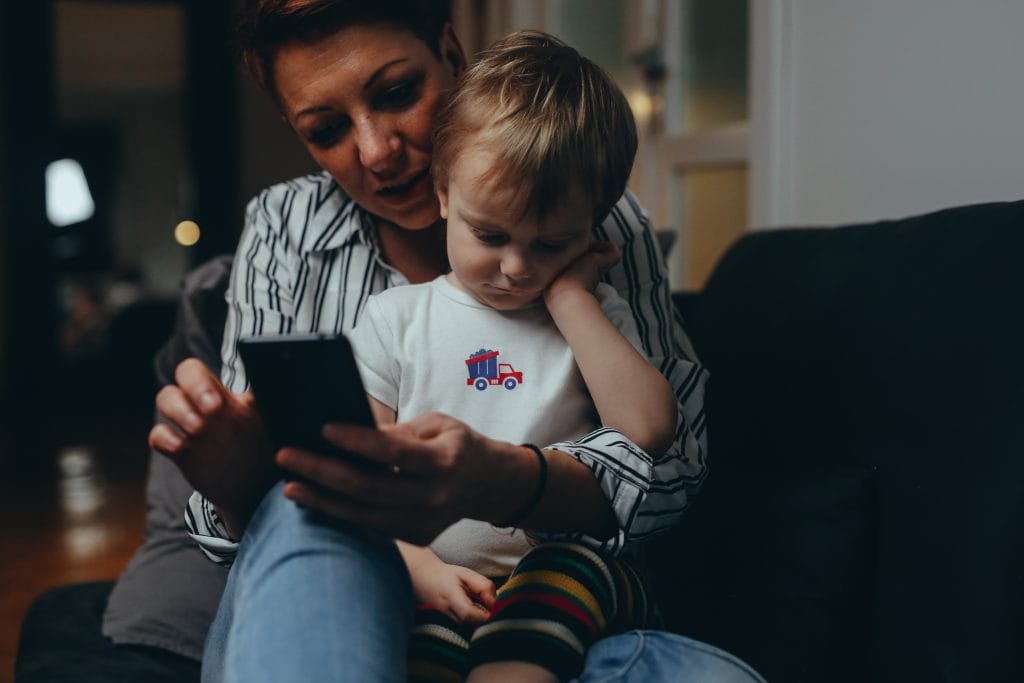Avoiding perfectionism is good for both parents’ mental health.
But why do younger parents fail to live up to their parental responsibilities?
As generations change, so does the institution of parenthood. Young parents – members of generations Y and Z – are becoming more aware, empathetic, sensitive and tolerant.
Despite this, young moms and dads are not always able to cope with the responsibilities of parenthood. Why does this happen, and why is it normal?
Excessive demands

Today’s parents demand far too much of themselves. A modern woman is not just a housekeeper: she wants to build a career, devote herself to a hobby. And at the same time, to be a good mother, without sacrificing any of these areas.
For a modern man, it’s important not only to provide for his family, but also to participate actively as a father in the upbringing of the children and in family life on an equal footing with the mother.
As a result, the number of tasks for young moms and dads is increasing, and the pace of life is quickening. Even I, as a modern mother, have been in situations where I was breastfeeding my baby, while answering professional emails.
There is still a “parenthood as duty” behavioral model, where the obligations of parenthood are seen as a constraint on professional life. The older generation insists that a woman is responsible for education and a man for financial security.
Photos of moms on social networks dictate that you put yourself first.

This dissonance of opinion affects women negatively. Worries grow under pressure and mental health is increasingly threatened.
In an effort to meet both their own and society’s demands, young parents have not yet learned to delegate. Transferring certain responsibilities – not all parental responsibilities, of course – is a rational decision that reduces the pressure on parents.
Psychologically, it’s a great relief, and the child also has different options. Such a practice will ensure that you don’t fall behind in your work or your children’s education. And even find time for leisure and self-care.
Changing values

Modern parents strive to balance everything: taking into account their parents’ mistakes, their opinion, the child’s needs and the opinion of relatives and experts. But not everyone can be happy, and there is internal conflict.
As a result, feelings of anxiety and the likelihood of depression increase in both parents and children. Grandparents put even more pressure on: “How did we do it? We managed with five children without nannies and worked in a factory, the house was always clean, we also had raspberries?”
The mother of the new generation takes care not only of her child’s needs, but also of herself. She allows herself to think that it’s normal not to achieve everything, and that it’s not necessary to do everything perfectly.
Avoiding perfectionism is good for the mental health of both parents. And a child who is not overprotected and to whom not everything is allowed, learns to freely experience the world around him.
The fear of not devoting enough time to children creates a feeling of guilt. The fear of not devoting enough time to the children creates a feeling of guilt, thus abandoning some of the so-called obligations. Delegation makes many young parents feel guilty, because it means that “they’re not doing everything they need to for their children”.
Slowly, modern parents are beginning to realize that delegation opens up possibilities. Ability to relieve themselves, reduce stress and take care of themselves. Because if parents are happy, children are too.
A wealth of information

Today’s parents have alternative sources of information. You don’t have to rely solely on the experiences of previous generations. In the past, the whole family was involved in bringing up their children.
Today, only a small number of parents have this opportunity. The rest are raising their children alone and understand: the world is changing, and grandma’s experience doesn’t always help.
With free access to knowledge and the popularity of the Internet, which is not always a reliable source of information, parents need to think critically and listen to each other. And because of this, it’s necessary to study different approaches to education and techniques for maintaining the balance between work and family.
However, it’s important for parents to understand that they are not omnipotent and don’t have to know everything – there are better people for that. If you don’t have the time to ask for information yourself, delegate.
Children can get help, knowledge and skills from experts in their field. For example, the idea of having baby teeth extracted at home today seems absurd – children go to the dentist for that.
For school preparation, creative, physical and psychological studies, it’s all exactly the same – you can turn to a professional.

Career, daily routine and children impose many obligations on young parents. Despite their awareness and independence, parents have to change and adapt to modern reality.
While the old parenting paradigm is becoming obsolete, young mothers and fathers are nonetheless in a position to expect help from their loved ones. This is why they are learning to trust each other, but also to delegate some of the responsibility to nannies, speech therapists and teachers.
Parents understand that there’s no perfect way to raise children, but they’re trying to approach the issue consciously and emotionally. And that’s good. Delegate, trust yourself and don’t be strict with yourself.

Well, hello there!
My name is Jennifer. Besides being an orthodontist, I am a mother to 3 playful boys. In this motherhood journey, I can say I will never know everything. That’s why I always strive to read a lot, and that’s why I started writing about all the smithereens I came across so that you can have everything in one place! Enjoy and stay positive; you’ve got this!

